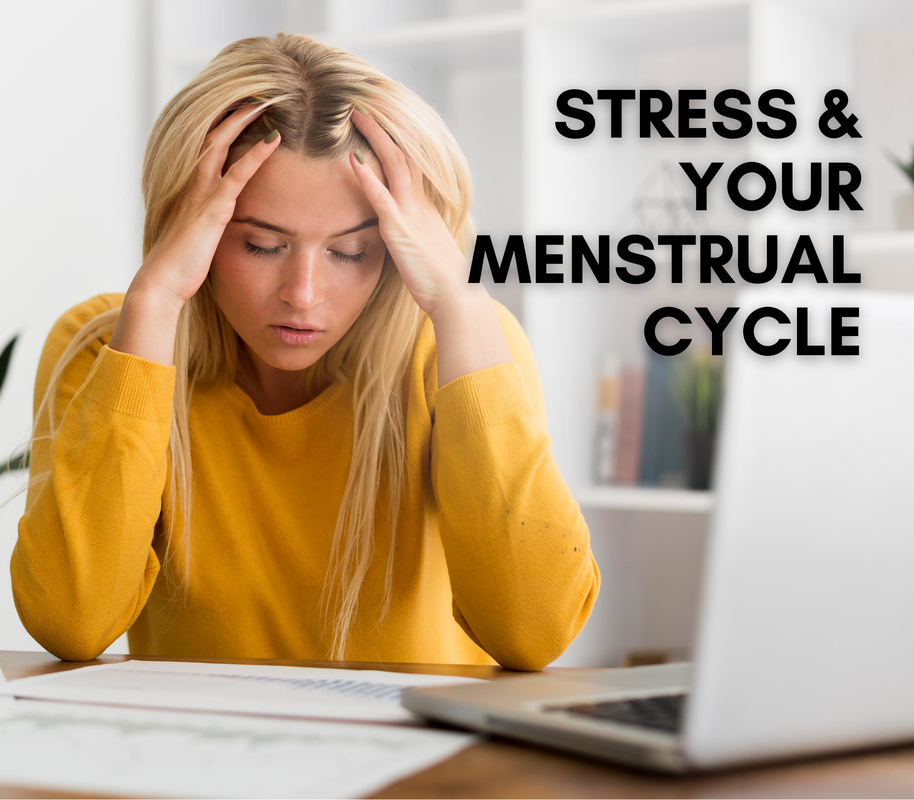- Home
-
Qualifications
- Diploma in Nutrition and Health Coaching
- Womens Health and Wellness Coach Certification
- Certified Coaching Professional Program
- Diploma in Coaching for Lifestyle & Wellbeing Management
- Holistic Wellness Coaching Program
- The Ultimate Triple Qualification
- Health Coaching Electives
- Wellness Coaching for Professionals
- Coach Gap Training
- Professional Certificate in Meal and Menu Planning
- Accreditation, Registration & Insurance Options
- Degree & Diplomas
- Short Courses
- Testimonials
- Enrol
- FAQs
- About
- Contact
- Login
- Things We Do
|
WHY YOUR PERIOD IS IRREGULAR AND YOUR HORMONES HAVE GONE HAYWIRE (AND WHAT YOU CAN DO ABOUT IT). Are you noticing skin breakouts? Disrupted sleep? Wonky periods? Mood swings? The world is collectively stressed right now. Covid-19 is probably affecting your health and your hormones in more ways than you think. Women's Hormones Course * Women's Health Coaching Course Menstrual cycle basicsSo much more than bleeding once a month, your menstrual cycle is a continuous series of physical and hormonal changes occurring in your body. The first day of your menstrual cycle is the first day of your period and the last day of your cycle is the day before your next period begins. Ovulation, where an egg is released by the ovaries for fertilisation by sperm, occurs around halfway through your menstrual cycle. Regardless of what day it is, your body is at some stage of the menstrual cycle, which is regulated by your hormones, mainly oestrogen and progesterone. The first half of your cycle is the time from your period until ovulation occurs. Oestrogen levels rise to prepare the body for ovulation and trigger the release of the egg. In the second half of your cycle, after ovulation has occurred, oestrogen levels drop and progesterone levels begin to rise as your body prepares for a potential pregnancy. If the egg was not fertilised, progesterone levels then drop, flushing the egg and the lining of the uterus from the body as your next period. The effects of stress on your fertilityStress can wreak serious havoc on your menstrual cycle. During times of stress, progesterone levels may be depleted, causing an imbalance between progesterone and oestrogen and leading to the traditional PMS symptoms of breakouts, cramping, headaches or mood swings. When your body is under stress, the stress hormones cortisol and adrenaline are released to activate the “fight or flight” response. This is your body’s reaction to a situation that your body recognises as dangerous or life-threatening, just as if we were being chased by a lion back in our cave-woman times. This reaction by our nervous system makes our heart beat faster to pump blood to our muscles, as well as increasing our breathing rate and blood sugar levels so we are ready to run away from the threat and keep ourselves safe in our cave. In today’s world, we are experiencing the stress response more often than our bodies are biologically used to. Throw in a global pandemic, financial stress and social isolation (and a toilet paper shortage) and our stress levels are off the charts! The collective energy worldwide right now is one of fear, anxiety and overwhelm due to so much uncertainty, and so our bodies have gone back to survival mode. When you are trying to run away from a lion (or dealing with whatever the universe has just thrown your way) your body isn’t worried about maintaining the balance of your sex hormones - your body doesn’t want to ovulate and become pregnant in such a dangerous environment! Stress hormones fight with the sex hormones - and they usually win. Oestrogen is the dominant hormone in the first half of the menstrual cycle, before ovulation occurs, while only a small amount of progesterone is produced. After ovulation, the adrenal glands increase production of progesterone to prepare the uterus for pregnancy. The chronic stress hormone cortisol is also produced by the adrenal glands. Your body links progesterone to fertility, so if your body is under stress, or perceives that your life is under threat and would be unable to carry a pregnancy safely, it will shut down progesterone production to avoid pregnancy. Am I still ovulating?Chronic stress, which was extremely common even before the world went into lockdown, leads to constant production of stress hormones and a shift away from progesterone production. Low progesterone has been linked to difficulty conceiving, miscarriage, weight gain, fluid retention, low mood, fatigue and an irregular menstrual cycle. Don’t stress yourself out further if you have suddenly noticed a change in your period. It may be heavier, more irregular or you might notice more PMS symptoms than you’re used to. If it’s late, don’t immediately panic that you’ve created a pandemic baby – there’s a chance that ovulation occurred later than usual in your menstrual cycle, or your body attempted to ovulate more than once before it was successful due to lower than normal progesterone levels. If you don’t already, start charting your cycle from the first day of your last period and keep track of any symptoms you notice from one day to the next. With practice, you will begin to notice signs that ovulation has occurred, which will help you to predict when your next period will arrive. The next step is managing your stress levels, which is a vital part of restoring progesterone levels and rebalancing an irregular cycle. 4 steps to stress less and fix your periodSTEP ONE: RECOGNISE Become aware of what is making you stressed – grab a pen and paper and brain dump how you are feeling right now and what specifically is worrying you. Finances, family…write down the details, not just “Coronavirus”. If you don’t feel like you’re managing on your own, especially in lockdown, pick up the phone, chat to loved ones and stay as connected as possible with family and friends. STEP TWO: REMOVE The current global situation is beyond our control. It’s important to remind yourself of that when things feel overwhelming and instead make your best attempt to remove the stressors that you can control. Find ways to manage your time productively and create a new routine so that every day feels full. If there are people in your life or on social media that are making you feel more stressed or highly emotional right now, make the most of social distancing and take some time away from them. Stop obsessively watching the news. STEP THREE: RELAX Practice relaxation and mindfulness techniques every day to keep your stress levels under control. Do things that make you happy – exercise, listen to music and make time to rest and sleep, especially if you have children at home with you. Remember, you are allowed to leave the house for exercise, so grab your headphones and go for a walk in your local area to release some endorphins - happy hormones that will fight your stress hormones. Gentle walking or yoga will be so much more beneficial to your body right now than high intensity workouts, which can intensify your body’s stress response. Deep breathing relaxation techniques signal to the brain that your body is not in immediate danger and deactivates the "fight or flight" response. If you recognise that you are feeling stressed, take a moment to take some deep belly breaths in through your nose and out through your mouth, breathing deep into your belly, not your chest. STEP FOUR: REACT Right now it’s probably not possible to remove all of the stress we are currently feeling. You cannot control unexpected life events like Covid-19, but you can control how you react to them. Try to adopt a positive attitude, practice gratitude for what you still have and find new strategies to handle this situation to reduce the degree of stress you are feeling right now. Be kind to the checkout chick packing your groceries and say hello from a distance when you walk past a stranger in the street. We are all in this together. Nobody saw Covid-19 coming. It has shut down the world, so it’s no wonder we are all feeling more than a little off-centre lately. Wonky and irregular periods and new hormonal symptoms are all signs of how recent events have disrupted our lives and our bodies to their core. If your periods have been affected, especially if you’re trying to get pregnant right now, irregular cycles can be really frustrating. Be kind to yourself and remember that your body is working hard behind the scenes to re-balance your hormones and regulate your menstrual cycle. Work with your body and your hormones, not against them. Focus on what you can control and remember that even this will pass.
AuthorRachel Simpson is an Australian-trained physiotherapist, nutrition and health coach and a natural fertility educator.
0 Comments
Leave a Reply. |
AuthorsBev Whyfon; Bev's Healthy Food Archives
July 2024
Categories
All
|
|
CONNECT WITH US
|
- Home
-
Qualifications
- Diploma in Nutrition and Health Coaching
- Womens Health and Wellness Coach Certification
- Certified Coaching Professional Program
- Diploma in Coaching for Lifestyle & Wellbeing Management
- Holistic Wellness Coaching Program
- The Ultimate Triple Qualification
- Health Coaching Electives
- Wellness Coaching for Professionals
- Coach Gap Training
- Professional Certificate in Meal and Menu Planning
- Accreditation, Registration & Insurance Options
- Degree & Diplomas
- Short Courses
- Testimonials
- Enrol
- FAQs
- About
- Contact
- Login
- Things We Do




 RSS Feed
RSS Feed
